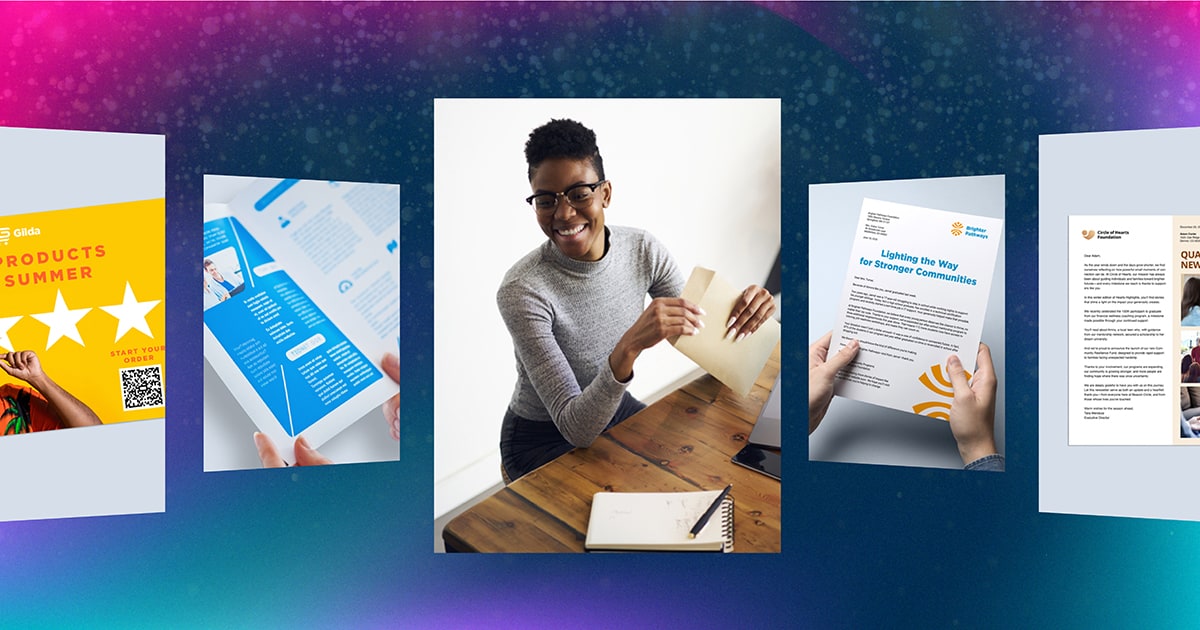
Building Brand Affinity: How to Remain Competitive in the B2B Sales Landscape

As buyers seek more nuanced customer experiences and emotional connections with brands that transcend traditional marketing practices, building brand affinity in the bustling—and crowded—business-to-business (B2B) sales landscape has become increasingly complex. Whereas business-to-consumer (B2C) brands experience competition for customers on an individual consumer scale, B2B brands must cater to more diversified interests to engage the companies to whom they are selling. Furthermore, as most B2B transactions are traditionally more enduring and reliant on a consistently fostered relationship, B2B brands must keep their customer experience strategies top-of-mind at all points throughout the customer journey, including pre- and post-sale.
Standing out to current and potential customers is particularly challenging in today’s dynamic marketing landscape—the average individual in the U.S. is exposed to an estimated 6,000-10,000 advertisements daily. Amid this deluge of information, B2B brands face significant challenges capturing and retaining customer attention. Across the B2B sales landscape, businesses can build brand affinity and give their sales and customer success teams a competitive edge by embracing personalization, emphasizing customer experience, and incorporating strategic gifting practices.
What sets B2B brand affinity apart from B2C?
Establishing an effective B2B brand affinity strategy poses a unique set of challenges. While B2C brands are equipped to allow for individual consumers to regularly shift their brand preferences, the complex nature of B2B product and service offerings often requires brands to develop more enduring customer relationships built on trust and positive, memorable interactions. In the B2B world, every interaction is an opportunity to build brand affinity. From sales calls and conversations with customer success managers to exchanges with tech support and account representatives, your customer will interact with a wide and diverse swath of your staff—and every interaction is going to leave an impression, whether it be good, bad, or indifferent.
To retain and grow their customer base, B2B brands must cater to the buyer at every point in the sales and customer journey. This can be done most effectively by enhancing the personalization and experiential elements of the marketing and sales cycles. Given the nature of B2B sales, companies often interact with a broad number of individuals—across departments—during the sales process and it’s important for the salesperson to understand the singular opinions and motives of everyone involved. To appeal to each of these parties, brands should adopt advanced personalization tactics that make each person feel valued and respected.
Tips to building lasting brand affinity
Now more than ever, B2B companies must focus on strategically boosting their customers’ interest in and loyalty to their brand. There are two critical steps that B2B brands should take to build lasting brand affinity:
1: Don’t underestimate the power of personalized content
With B2B brands jockeying for customers in the crowded digital marketing landscape, companies must carefully craft brand affinity strategies that will engage and delight a wide variety of stakeholders with personalized messaging. Personalization is the key to closing sales and driving repeat business in the B2B marketplace, and it must go beyond simply adding the customer’s first name to an email. To do personalization right, companies need to use digital signals and behavioral intent data to determine the most relevant and timely customer experiences. Each sales prospect should feel as though they are the only company the vendor is serving.
One powerful way to personalize your customers’ sales journeys is to train sales representatives to act as if they are selling to friends and relatives. By doing this, you relax the conversation, set a more casual tone, and make the customer feel more valued—after all, wouldn’t you feel more appreciated if you were treated like family when buying a product or service? When sales proceedings feel perfectly tailored to the customer—allowing trust to naturally grow—customer affinity for the brand begins to organically build.
2: Create the hybrid experience that buyers crave
Developing customer experiences that rely on digital and analog elements used in tandem—the hybrid experience—is another way for B2B brands to create meaningful experiences for their customers to drive sales. Brands can use this powerful combination to create a competitive sales advantage by using digital metrics to inform physical touchpoints. For example, a company can capture the attention of their intended audience by identifying which current or potential customers to reach out to using digital intent signals and then sending a customized pamphlet and, say, a Yeti mug to those targets.
When brands begin losing engagement online, reaching out to customers with a gift can help to drive renewed engagement. Studies have shown that giving a gift, regardless of its worth, makes a customer much more likely to purchase items or services from the sender.
When companies incorporate both personalization and hybrid elements into their B2B sales process, they can effectively enhance customers’ emotional buy-in and increase sales conversions.
Customers are seeking more engaging experiences and emotional connections from their brands of choice, and B2B sales teams must evolve their strategies to keep up—or be left behind. For B2B brands to set themselves apart from the competition, the customer relationship and customer experience must be the focal point of all sales processes and communications. By emphasizing personalization and hybrid experiences, B2B companies gain the ability to boost sales and forge meaningful and lasting relationships with their customers.



